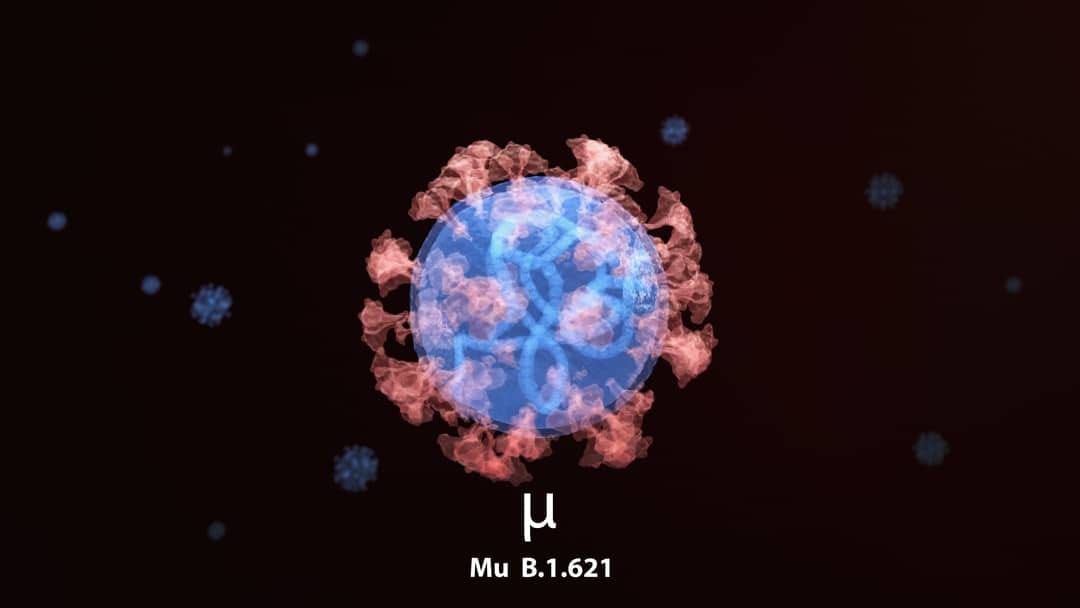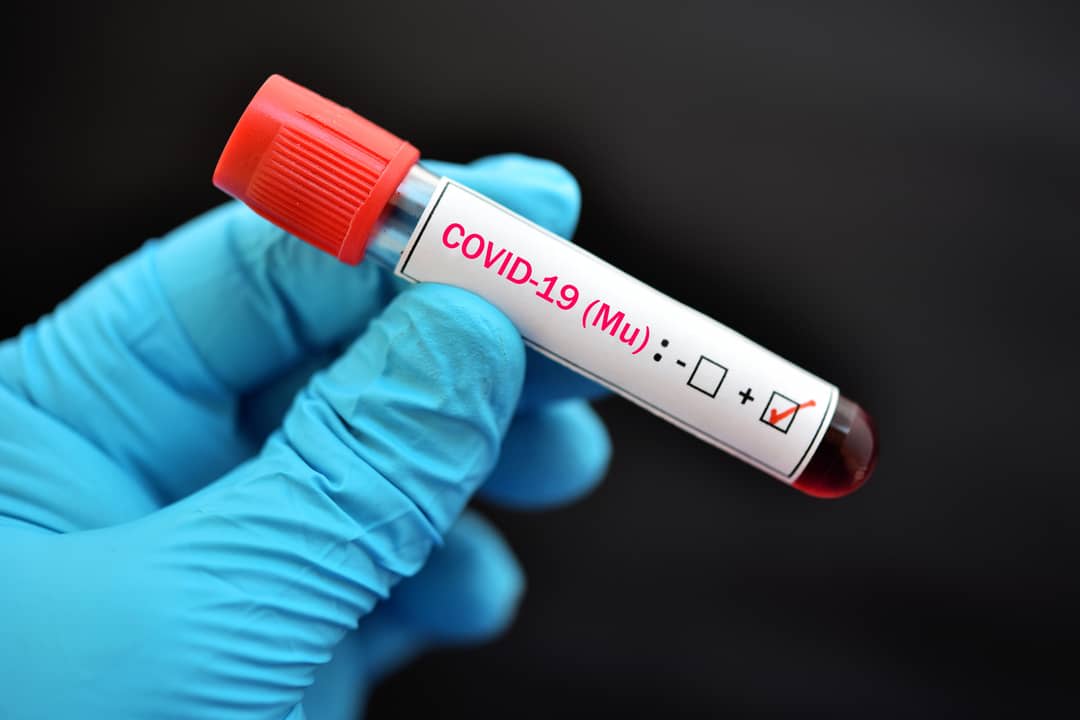
The new COVID-19 Mu variant has been listed as a variant of interest (VOI) by the World Health Organisation. Like variants of concern (VOCs), VOIs may be more contagious, able to evade the immune system, be more resistant to available treatments, or harder to detect.
There’s less research on the impact of VOIs on infections and hospitalisations compared to VOCs. Additionally, they can cause outbreaks in multiple countries, but are not as widespread as VOCs.
Mutations are “of interest” to certain countries based on infection rates.
Why is this particular variant of interest?
All viruses, including SARS-CoV-2 that causes COVID-19, mutate over time, and most mutations have little or no effect on the properties of the virus. But certain mutations can impact the properties of a virus and influence how easily it spreads, the severity of the disease it causes, and its resistance to vaccines, drugs and other countermeasures.
Read more: COVID variants Lambda and Delta Plus: All you need to know about the emerging strains
The Mu, or B.1.621, variant has many mutations that suggest it could be more resistant to vaccines. The new variant, detected in 42 countries, possesses a “constellation of mutations that indicate potential properties of immune escape”.
Since March this year, Mu is the fifth “variant of interest” to be monitored by the World Health Organisation (WHO). It was first identified in Colombia in January, and has since caused isolated outbreaks in South America, Europe, the US and, most recently, Canada.
COVID-19: Mu variant confirmed in B.C. — here's what you need to know https://t.co/YaNSYOPni1— The Vancouver Sun (@VancouverSun) September 12, 2021
Mu has a mutation called P681H, first reported in the Alpha variant, that’s potentially responsible for faster transmission. However, this study and its findings have yet to be formally reviewed by other scientists.
We can’t be sure of P681H’s effects on the virus’ behaviour just yet. Mu also has the mutations E484K and K417N, which are associated with being able to evade antibodies against the coronavirus, with the evidence on this being more concrete.
These mutations also occur in the Beta variant, making it possible for Mu to behave like Beta, which some vaccines are less effective against. Mu also has other mutations, including R346K and Y144T – their consequences are unknown, hence the need for further analysis.
Can Mu evade pre-existing immunity?
There’s only limited information on this as yet, with an Italian study showing that the Pfizer/BioNTech vaccine was less effective against Mu compared to other variants when tested in a lab-based experiment. Despite this, the study still considered the protection offered against Mu by the vaccine to be robust.
We don’t yet know whether Mu’s mutations will translate into increased infection and disease. In late July, a Florida media outlet reported that 10% of samples sequenced at the University of Miami were Mu.
In early August, Reuters reported that seven fully vaccinated residents of a nursing home in Belgium had died from an outbreak of Mu. However, these are limited snapshots of the variant’s behaviour.
The global prevalence of the Mu variant among sequenced COVID-19 cases is currently below 0.1%, but it has consistently increased in countries including Colombia, by 39%, and in Ecuador by 13%.
We must take heed of what’s happening around us
Let’s look at cases involving the Mu variant in Japan and South Korea. All cases are from travellers from affected countries where there have been many infections involving the Mu variant, including the UK, the US, Mexico and Colombia. It won’t be long (a matter of weeks) before we see this new variant in Malaysia if stringent measures aren’t taken soon enough, with more borders reopening worldwide.
For example, it should be a stringent requirement for travellers from countries with a Mu variant infection/circulation to take a PCR test upon arrival and, if positive, to be quarantined in a designated facility, or hospitalised, depending on their symptoms.
Even if they test negative, they should be required to quarantine for 14 days at home or a designated facility, depending on where they’re from. PCR tests are vital, as there are cases of travellers with the asymptomatic Mu variant.

Every time the virus reproduces inside someone, there’s a chance of it mutating and a new variant emerging.
This is a numbers game. It’s a random process, a bit like rolling dice. The more you roll, the greater the chance of new variants appearing. It’s basically a ticking time bomb.
The main way to stop variants is global vaccination, which is the ultimate shield against all of these new variants. The emergence of Mu reminds us of how important that goal remains.
“However, given how the pandemic has been handled so far, it’s likely that it will become endemic, with the virus probably taking a similar route to the four existing ‘human’ coronaviruses that are already in circulation, and cause upper respiratory infections.”
Despite reduced efficacy against certain variants, vaccines still give us protection against developing severe symptoms and hospitalisations/mortality to a large extent.
We should also look into the possibility of a booster dose for those vaccinated earlier.
Recent data shows immunity waning six months after receiving this vaccine. It’s worrying if we look at the surge of infection/hospitalisation in Israel, despite being one of the first countries to vaccinate the majority of its population. Israel used Pfizer-BioNTech as its leading vaccine portfolio.
Can we live with ‘endemic’ COVID-19?
It’s possible, experts say, that COVID-19 could become a seasonal illness, like the flu. Virologists call this an ‘endemic’ disease – one that’s constantly circulating among us.
In the years and decades to come, many people will be exposed to it in childhood and develop some immunity, which would protect them later in life against serious disease.
However, given how the pandemic has been handled so far, it’s likely that it will become endemic, with the virus probably taking a similar route to the four existing ‘human’ coronaviruses that are already in circulation, and cause upper respiratory infections.
Having had COVID-19 is unlikely to give you lifelong immunity. But, even if you’re again infected, the second infection will likely be less serious.
We might need booster doses against variants, and to provide optimal immunological memory against the disease. If SARS-CoV-2 experiences antigenic evolution at rates that are similar to influenza, annual shots for vulnerable populations may well be necessary.





